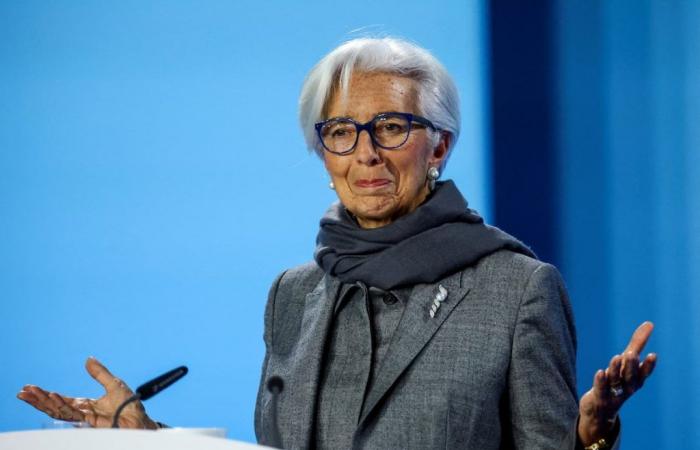The European Central Bank (ECB) sees no reason for alarm despite the turbulence that has hit the markets due to political instability in France. As they have declared to Bloomberg people close to the institution who remain anonymous, for the moment, the great uncertainty does not prevent calm from reigning within the highest European monetary authority.
In contrast to this message of calm from the sources reported by the US agency, the turmoil has caused the suddenest weekly rise in the French risk premium in…
To continue reading this Cinco Días article you need a Premium subscription to EL PAÍS
The European Central Bank (ECB) sees no reason for alarm despite the turbulence that has hit the markets due to political instability in France. As they have declared to Bloomberg people close to the institution who remain anonymous, for the moment, the great uncertainty does not prevent calm from reigning within the highest European monetary authority.
In contrast to this message of calm from the sources reported by the US agency, the turmoil has caused the suddenest weekly rise in the French risk premium in history, an increase of 27.8 basis points, taking it from 47.8 from last week to 76.7 points at the close of the current week. In addition, it has triggered the erosion of around 89 billion euros in market value of the CAC, the country’s main index, which has experienced its worst week in two years, with a decline of 6.23%.
ECB spokespersons have avoided making statements regarding the situation. Macron’s call for elections came after the poor results of his party in the European elections. Meanwhile, the strength of Marine Le Pen’s National Group in the elections has unleashed a wave of concern not only in the French markets, but also in the rest of the Old Continent.
The prospects of contagion in debt instability can be a challenge for an ECB that, although it has faced serious crises in this area in the past, has never had to apply its crisis measures in an economy as large as the French. The last time the ECB had to intervene in an emergency due to instability in the sovereign debt of a eurozone State was two years ago, when the mere prospect of having to raise interest rates in the face of the inflationary crisis unleashed a storm in the Italian debt.
French Economy Minister Bruno Le Maire warned this week that in the event of a Le Pen victory, “a debt crisis could occur,” while at the same time also noting that a victory for the “new Popular Front” that the French left has formed could lead to France leaving the European Union. Regardless of the political nature of the next Government, the Governor of the Bank of France, Farançois Villeroy de Galhau, has asked that it clarify its economic policy as soon as possible.
In June 2022, when the last emergency intervention occurred due to the turbulence in the Italian debt, the ECB acted very quickly. In a matter of days, the president, Christine Lagarde, led a crisis committee from a London hotel that gave rise to a new tool to prevent the fragmentation of the eurozone debt, the one known as the Transmission Protection Mechanism (TPI). its acronym in English).
At the time of its birth, the ICC found detractors and defenders. Among the former, the still governor of the Bundesbank, Joachim Nagel, stood out above all; among the latter, Villeroy himself stood out. “Transmitting monetary policy correctly is part of our mandate. Working on a mechanism that avoids market fragmentation is a duty of the government council and not a concern to accommodate any particular state,” Villeroy stated.
In its explanation of this mechanism, the ECB detailed that it consists of the purchase of debt of the country affected by instability in the debt that is not related to its fundamentals. The existence of the TPI may be one of the reasons that explains the tranquility that reigns in Frankfurt and the posture of observing from the sidelines, but the turbulence has already activated the debate between investors and analysts about the conditions of application of the TPI and many are skeptical regarding its activation.
Follow all the information Five days in Facebook, x and Linkedinor in our newsletter Five Day Agenda
Newsletters
Sign up to receive exclusive economic information and the financial news most relevant to you
Sign up!






